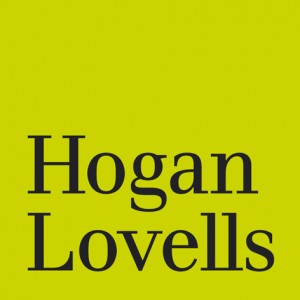We are most pleased to invite you to participate in an evening of discussion on the theme of diversity management in European business with our distinguished speakers
- Mrs Anu Ritz, European Commission, Directorate General for Justice and Consumers;
- Mr Brando Benifei MEP, Member of the Committee on Employment and Social Affairs of the European Parliament;
- Mrs Cécile Coune, Chief Executive Officer, Aviabel ;
- Mrs Annica Ryngbeck, Policy & Advocacy Adviser at Social Platform.
The debate will be moderated by Mrs Ruth Grant, co-Chair of the Hogan Lovells Diversity and Inclusion Committee.
This event is kindly sponsored by

About the debate
While in times of economic downturn or weak recovery both investors and decision-makers tend to concentrate their attention on gross domestic product’s advancement in order to assess and enhance economic performance, the focus is currently shifting to other factors such as diversity management which appear to shape economic efficiency and competitiveness, as well as social inclusion and, ultimately, promote economic growth.
Two regulatory initiatives, due to gain visibility in the Autumn, support this shift.
First, the European Commission‘s proposal for an Equal Treatment Directive to ensure a uniform level of protection against discrimination on grounds of disability, age, sexual orientation and religion or belief anywhere in the European Union. While the European Parliament backed the file in April 2009, the directive is still under negotiation in the Council. Secondly, the OECD is currently reviewing its Principles of Corporate Governance, scheduled for completion in 2015. The draft of the OECD Principles, which were submitted to public consultation in November 2014, includes measures for “boards of large companies to regularly carry out evaluations to appraise their performance and assess whether they possess the right mix of background and competences” and proposes that “measures such as voluntary targets, disclosure requirements and private initiatives that enhance gender diversity on boards and in senior management should be encouraged”.
A 2014 European Commission Report on the impact of voluntarily-signed national Diversity Charters in the EU, pointed out that diversity enhancement in employment not only increases efficiency and innovation, but also contributes to tackling poverty risks, countering the effects of ageing societies and youth unemployment and facilitating creative and flexible solutions. Furthermore, the Report emphasised the issue of diversity management by stating that “business benefits do not accrue merely by the presence of diversity in the workforce”, but they require an “effective diversity management”. Already in 2012, in an effort to define the wide range of social and demographic factors which have been major drivers for economic improvement, a Forbes study on global diversity dynamics – based on a global ranking model built by Oxford Economics – pointed out that “one of the most striking economic events in recent times has been the entry of large numbers of women into the workforce”, while adding that it would be worth noting that ”greater economic equality between men and women has been shown to reduce poverty rates, boost GDP and lead to better governance”. Similar methodologies applied by other researches to other sections of the population investigated, among others, age, ethnicity or disability conditions in order to evaluate if businesses were profiting from the diversity which is increasingly present in modern societies.
Recent trends reveal that both global and European companies are increasingly investing in diversity with a view to creating short, medium and long-run opportunities, opening up new markets and increasing their presence in already acquired markets.
Although the 2009 Equal Treatment Directive approved by the Parliament is still under negotiation in the Council, European citizens enjoy, in legal terms, a fair level of protection against discrimination. Nevertheless, various experts have advocated not only for a regulatory change, but most importantly for a cultural renovation of the working environment towards a model which is claimed to reconcile both sustainability and competitiveness. Will diversity be the driving factor for the achievement of a “triple A” Europe?
This event is held under the Chatham House rule. Participants are free to use the information received, but neither the identity nor the affiliation of the attendees, may be revealed. For this reason, unless explicitly authorised by PubAffairs Bruxelles, filming and/or recording the event by any means is strictly forbidden.
The event will commence with a welcome drink at 7h00 pm, followed by a debate at 7h30 pm. After the debate there will be an opportunity for questions and discussions. We look forward to seeing you at 7h00 pm on the 29th of September at Science14 Atrium, rue de la Science 14-B, Brussels.
All our debates are followed by a drink in a convivial atmosphere.

